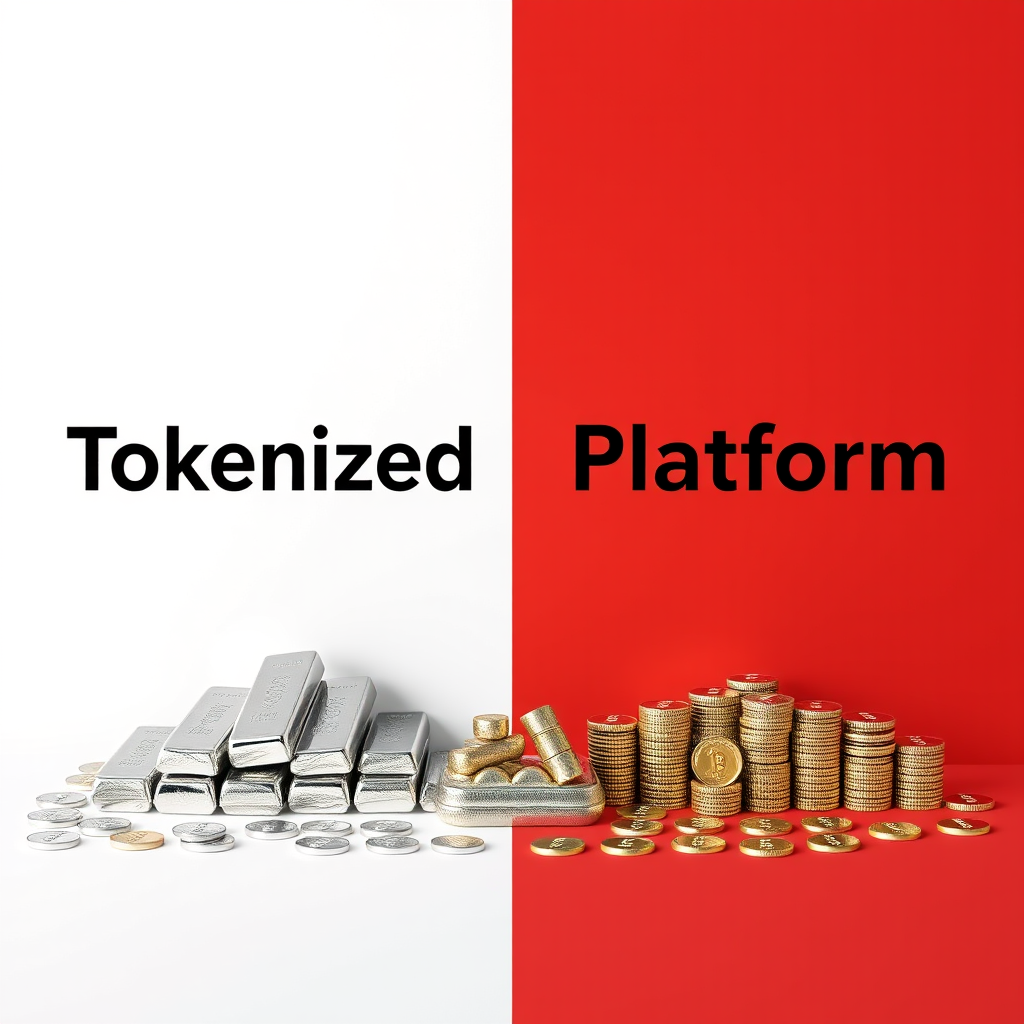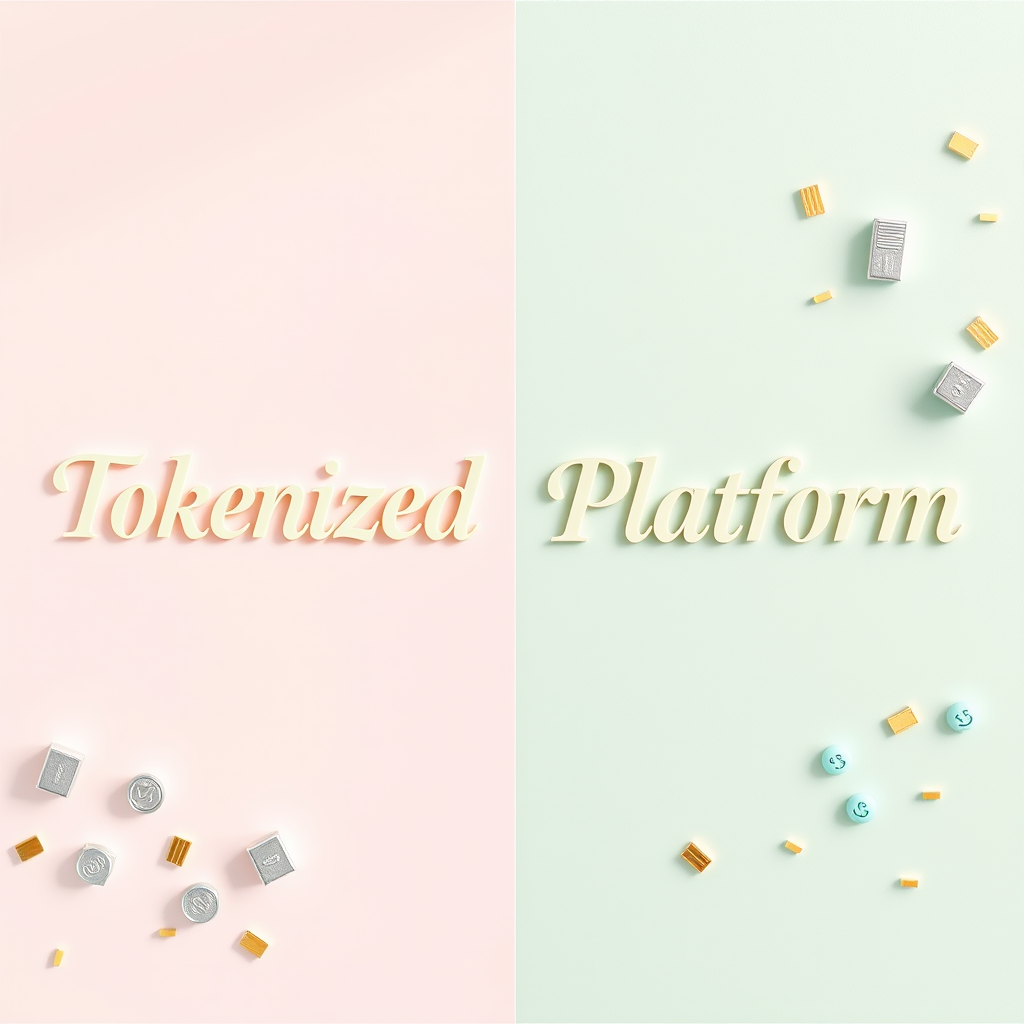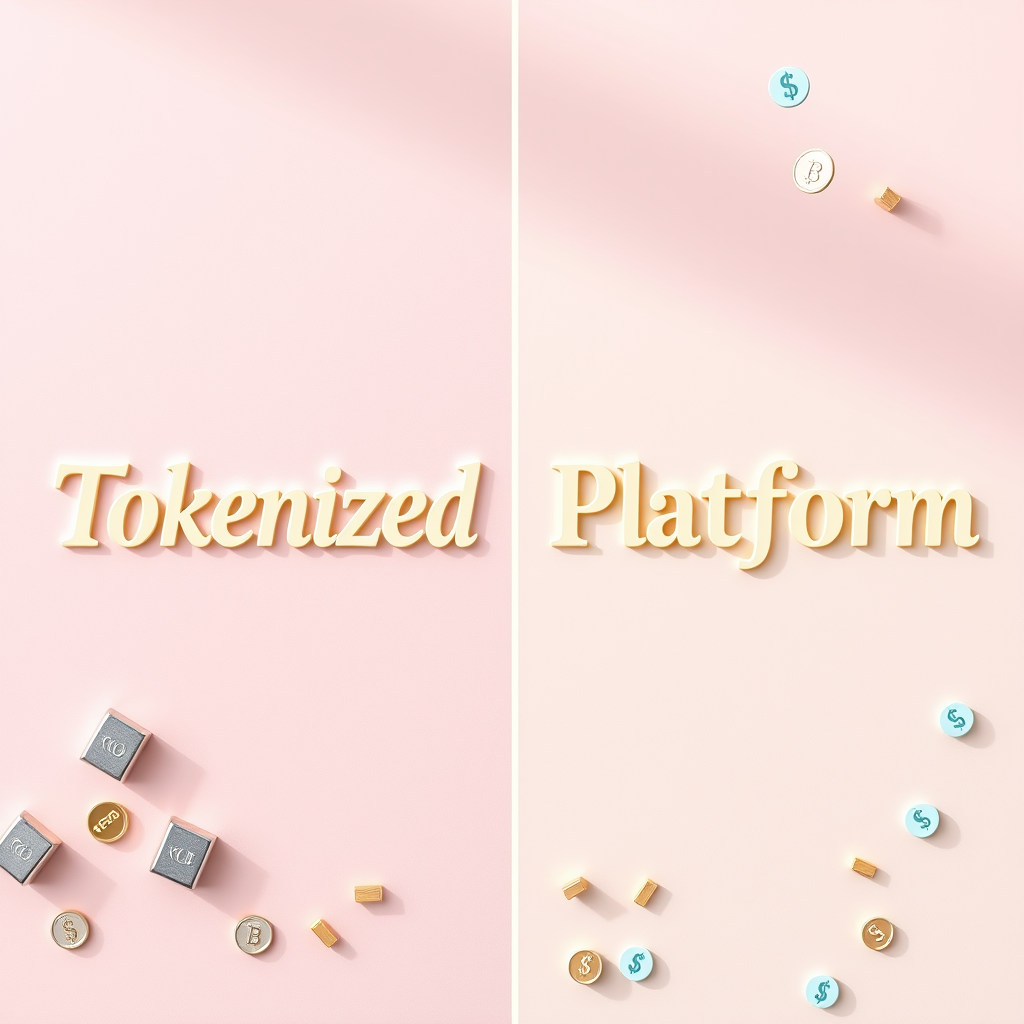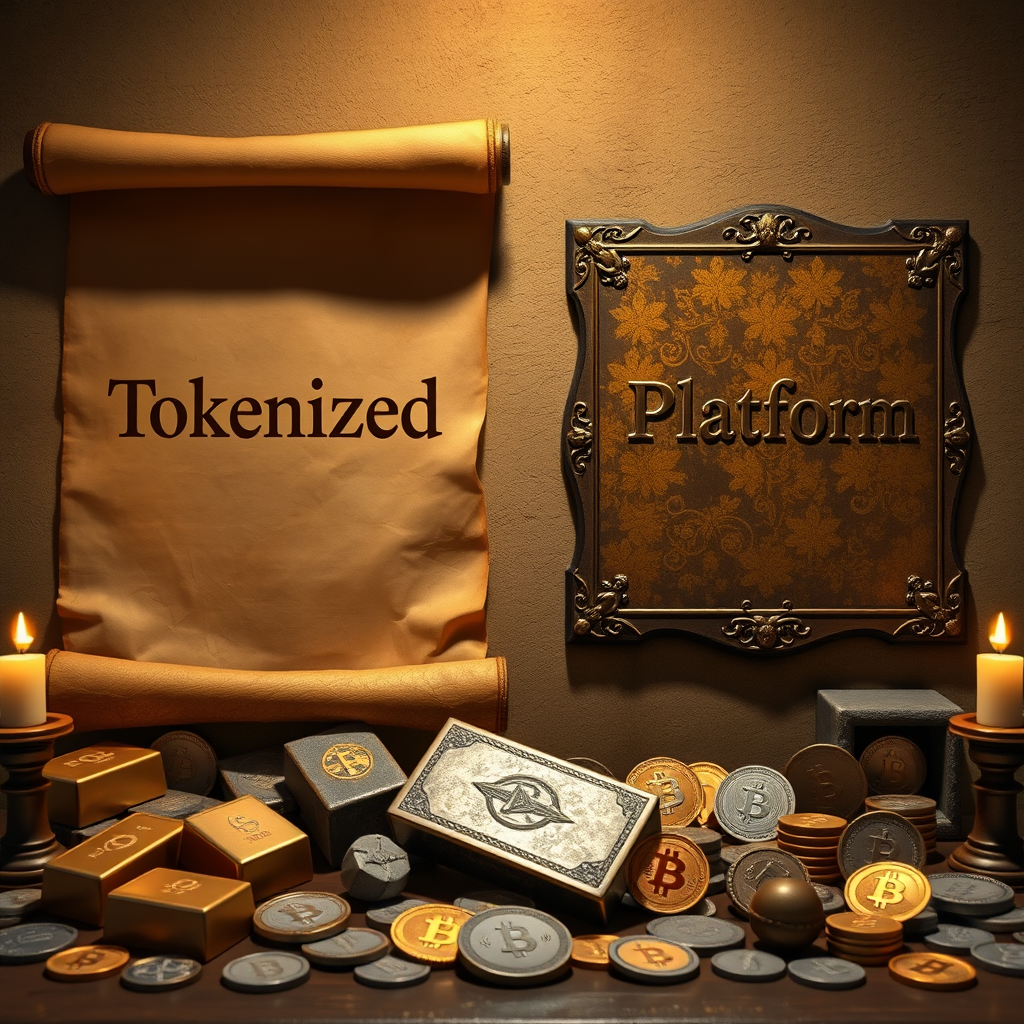Tokenized commodities represent a significant advancement in the integration of blockchain technology within traditional markets. This concept involves creating digital representations of physical assets, such as commodities, on a blockchain. By doing so, these assets become easily tradable on a tokenized platform, facilitating immediate and secure transactions that reduce inefficiencies often present in traditional systems. The use of blockchain ensures a high degree of supply chain transparency and traceability, enabling all parties involved to verify the authenticity and movement of goods throughout the entire process. This transformation of real world assets (RWA) into digital tokens not only simplifies logistics but also opens up opportunities for fractional ownership, allowing a wider range of investors to participate in the commodities market. As a result, tokenized commodities have the potential to revolutionize how commodities are bought, sold, and managed globally.
The role of Ethereum in supply chains

Ethereum plays a pivotal role in modernizing and securing supply chain operations through its blockchain technology. By providing a decentralized platform, Ethereum enables the tokenization of assets, allowing businesses to digitize commodities and automate transactions. One significant advantage is its smart contract capability, which allows for self-executing agreements that automatically enforce the terms and conditions embedded within them. This feature streamlines processes and minimizes the potential for human error, fostering greater efficiency in logistics and transaction flows.
Additionally, Ethereum enhances supply chain transparency by enabling all stakeholders to access and verify the same set of data. Each transaction recorded on the Ethereum blockchain is immutable and time-stamped, providing a reliable source of truth. As a result, parties involved in the supply chain can easily track the provenance of a commodity, verify certifications, and ensure compliance with regulations without the need for a central authority.
The open and programmable nature of Ethereum also encourages innovation within the supply chain ecosystem. Developers can create decentralized applications (dApps) tailored specifically to the needs of different industries, from agriculture to manufacturing. These dApps can include features such as real-time inventory management, predictive analytics, and automated reporting, further optimizing operations.
With the tokenized platform provided by Ethereum, companies can harness these technological capabilities to not only enhance their operational efficiencies but also address the growing demand for supply chain sustainability and accountability. This ability to tokenize commodities and execute smart contracts on a secure, transparent blockchain makes Ethereum an invaluable tool for modern supply chain management.
Benefits of tokenization for commodity markets
Tokenization offers numerous advantages for commodity markets, transforming traditional systems into more efficient, transparent, and accessible platforms. By leveraging blockchain technology, tokenized commodities provide enhanced liquidity, allowing assets to be divided into smaller, tradable units. This capability enables broader participation in the market as smaller investors and institutions can easily buy and sell fractions of a commodity, democratizing access and fostering a more inclusive trading environment.
In addition to increased market accessibility, tokenized platforms promote supply chain transparency by recording every transaction on the blockchain. This immutable ledger offers a verifiable history of asset movements, reducing the risk of fraud and ensuring the authenticity of the commodities being traded. Furthermore, this transparency extends to regulatory compliance, as stakeholders have access to standardized, tamper-proof records that can be used to verify certifications and adhere to industry standards.
Another significant benefit of tokenization is the potential for cost reduction. By removing intermediaries and enabling direct peer-to-peer transactions, tokenized commodities reduce reliance on brokers and third-party agents, cutting down on transaction costs and streamlining processes. The use of smart contracts also automates settlements, reducing administrative overhead and minimizing the possibility of errors due to human intervention.
Moreover, tokenization facilitates the implementation of innovative financial products, such as commodity-backed stablecoins, which can hedge against volatility and offer new ways for investors to manage risk. As the tokenized platform continues to evolve, it paves the way for more complex financial instruments, including composite tokens and synthetic assets, which further expand the possibilities within commodity markets.
The benefits of tokenization extend beyond mere financial transactions. By integrating blockchain technology into commodity markets, the process enhances supply chain efficiency, fosters trust among stakeholders, and supports a more sustainable trading ecosystem. The tokenization of commodities through platforms like Ethereum is not just a technological advancement; it is a fundamental shift towards a more open and equitable marketplace.
Case studies of tokenized platforms

Several companies have embarked on the journey of utilizing tokenized platforms to revolutionize commodity markets, leveraging blockchain technology for enhanced efficiency and transparency. One notable example is the case of VAKT, a blockchain-based post-trade management platform tailored specifically for commodities. By digitizing traditional paperwork and incorporating smart contracts, VAKT streamlines the entire trade process, reducing the time and costs associated with commodity trading. Its platform is built on Ethereum, which allows for seamless integration of other services, enhancing its functionality and providing a secure and transparent environment for all transactions.
Another significant example comes from the agriculture sector, where the company GrainChain has made strides with its tokenized commodities platform. Utilizing Ethereum’s blockchain technology, GrainChain offers farmers, buyers, and other stakeholders the ability to track and manage supply chains with unprecedented accuracy. This integration of blockchain enhances supply chain transparency, enabling all parties to verify the movement and quality of goods through each stage of production. By providing farmers with direct access to marketplaces and reducing dependency on intermediaries, GrainChain empowers them and ensures fairer trading practices.
Furthermore, the company Trafigura has explored the integration of blockchain in the oil trade. By tokenizing oil on a blockchain platform, Trafigura has simplified logistics and enabled real-time tracking of shipments. This deployment not only improves efficiency but also offers a reliable and immutable ledger for verifying supply chain data. The application of blockchain in this context ensures a level of transparency and traceability that traditional systems cannot match, opening new opportunities for more effective risk management and compliance.
These case studies illustrate the transformative potential of tokenized platforms within commodity markets. While challenges remain, particularly in terms of regulatory acceptance and technological scalability, these examples highlight a clear path forward. By embracing blockchain technology and the concept of real-world assets (RWA), these platforms demonstrate that the future of commodity trading is one where efficiency, transparency, and accessibility are paramount. As more industries and market players adopt these innovations, the tokenized commodities market will likely continue to expand and evolve.
Future outlook and challenges for tokenized supply chains

As the adoption of tokenized platforms continues to grow, several trends and challenges will shape the future of tokenized supply chains. One major trend is the increasing demand for supply chain transparency, driven by consumer awareness and regulatory pressures. Blockchain technology, particularly through platforms like Ethereum, offers an unprecedented level of transparency, ensuring that every transaction is visible and verifiable by all stakeholders. This capability not only builds trust among participants but also enhances compliance with industry standards and governmental regulations.
Despite these advantages, the transition to tokenized commodities within supply chains is not without challenges. One of the significant hurdles is the interoperability between traditional and digital systems. Integrating blockchain-based solutions into existing supply chain processes requires substantial investment and a reorientation of current business practices. Companies must address technical complexities and ensure that legacy systems can effectively communicate with decentralized applications.
Another challenge lies in the regulatory landscape, which remains fragmented and evolving. As governments and institutions grapple with understanding and regulating blockchain technology, companies must navigate a complex web of legal and compliance issues. The lack of uniform regulations across different jurisdictions can hinder the seamless adoption of tokenized commodities, as businesses must customize their strategies to comply with local laws.
The scalability of blockchain networks, particularly Ethereum, is another concern. While Ethereum offers robust smart contract functionality and a secure platform for tokenization, its current infrastructure must overcome limitations related to transaction throughput and energy consumption. The ongoing development of Ethereum 2.0 promises to address some of these issues by enhancing scalability and sustainability, crucial factors for widespread adoption.
Looking ahead, the continued collaboration between industry stakeholders, technology developers, and regulators will be vital in overcoming these challenges. As the market for tokenized commodities expands, enhanced versions of blockchain technology, along with clearer regulations, are likely to emerge. The potential for increased efficiencies, cost reductions, and improved accountability make tokenized supply chains an appealing prospect for many sectors of the economy.
While the road toward fully tokenized supply chains is fraught with challenges, the opportunities presented by this innovative approach to commodity trading and logistics are considerable. As technology advances and regulatory frameworks solidify, we can expect to see a shift toward more transparent, efficient, and accessible supply chain practices, fundamentally transforming how commodities are managed and traded globally.






